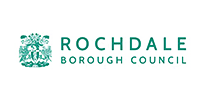How Rochdale Borough Council developed a fair and accurate approach to calculating residential care costs
Rochdale Borough Council provides a range of social services for adults across its borough. The Council’s social care strategy sets out a vision that provides quality services which are safe and deliver positive outcomes for its residents.
Working in partnership, the Council is committed to supporting residents with complex and high needs including older people and working-age adults with physical disabilities, learning disabilities and people with mental health conditions – and commissions support and specialist services from a wide range of private providers.
For those who can’t be supported to live independently, the Council works with providers to offer residential and nursing care. With a focus on creating and delivering person-centred solutions that meet the needs of the individual, the Council was keen to implement a system that would accurately calculate individualised care home budgets.
Creating a care homes model fit for the future
Using a standardised method for calculating high needs funding often made it difficult for the Council’s social care practitioners to provide a transparent financial allocation based on an individual’s needs and negotiate a starting point for funding. With this in mind, the Council implemented the Needs-based care home budgets module within Imosphere’s Formulate solution, a resource allocation system that offers accurate, equitable and sustainable estimated budgets for care and support costs.
Working with Imosphere, the Council also created a new residential care banding model based on an individual’s behaviours and the level of support required – replacing the existing standard and non-standard placements. For costed placements that do meet the criteria of the new residential care bandings, the Council now uses a standard ‘banded’ rate. However, for placements at the highest level in the banding model, the new module within Imosphere’s Formulate product is used to generate costs based on an estimated number of hours of care and support each individual will need in a care home setting.
The care costs are then used alongside non-staffing costs (including hotel costs) calculated by a third-party system, CareCubed, to provide the Council with the information its practitioners need. The overall new solution has allowed the Council to move away from standard rates for those with complex needs and instead calculate an estimated budget for service users based on the person-centred assessments carried out by its social care practitioners.
Transparent, fair and equitable budgets
The process for calculating care home budgets has now been streamlined, providing the Council with a consistent method that gives an early indication of the appropriate amount of funding required to meet the identified needs for each individual.
The right resources to support individuals’ needs
The system has allowed us to negotiate a fair rate for complex placements, as we now have the confidence to break down care and non-staffing costs and have open discussions with providers when we need to. This is something we've never had before and a huge step forward for Rochdale. A huge well done to all our staff involved in an innovative project, which has shown our pioneering spirit at its very best.
The results
-
Moving to needs-based care home budgets has given Rochdale Borough Council transparency on the resource allocation based on individual need.
-
This has facilitated commissioning to negotiate a fair rate for complex placements.
-
Process improvements have been achieved using the new residential banding model and assessment processes, as there is a sole focus on the needs of the individual.
-
Ability to track where a higher cost has been paid (above the estimated budget) as a market supplement.
-
The Council has been able to identify gaps in the market and present this information to the accommodation strategy group to develop and inform the market.
